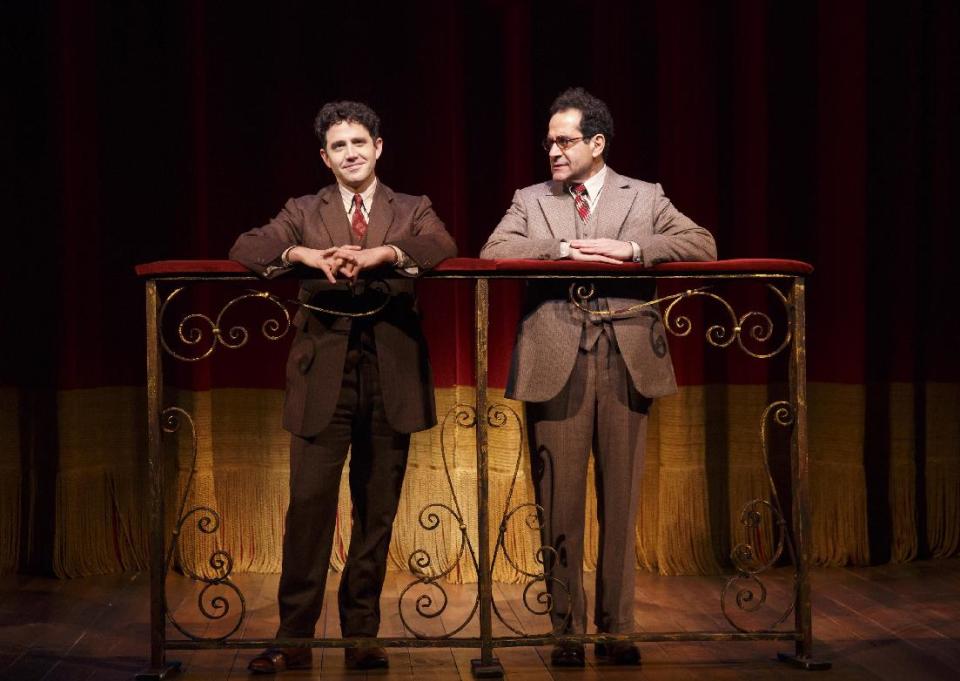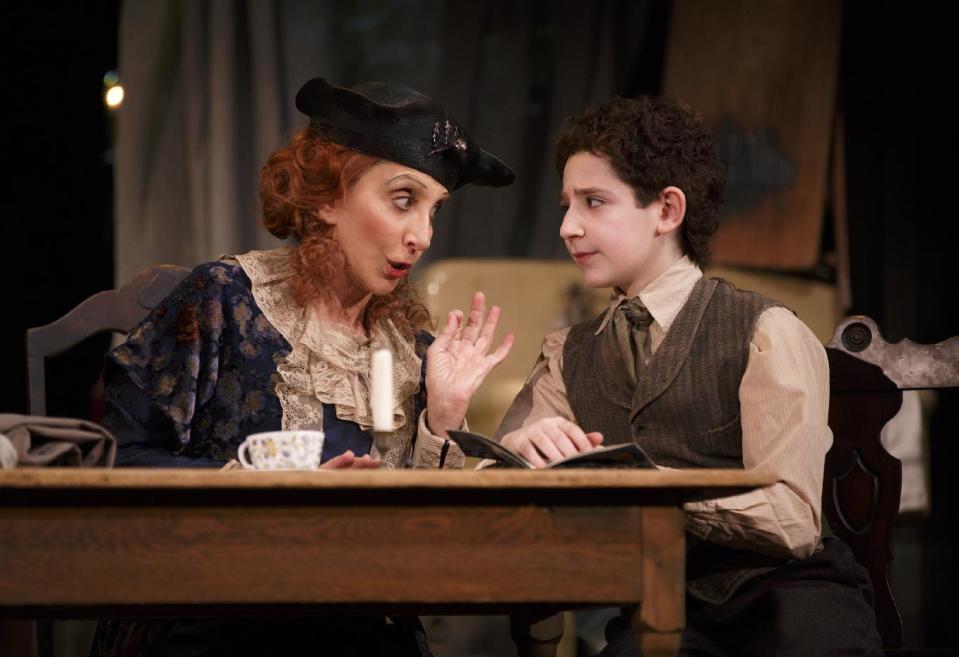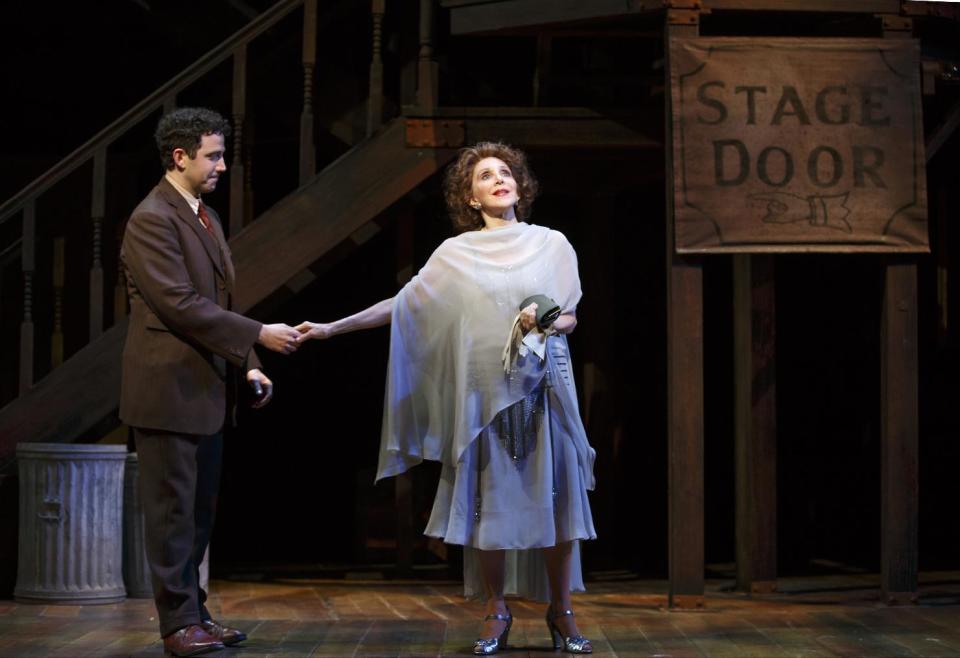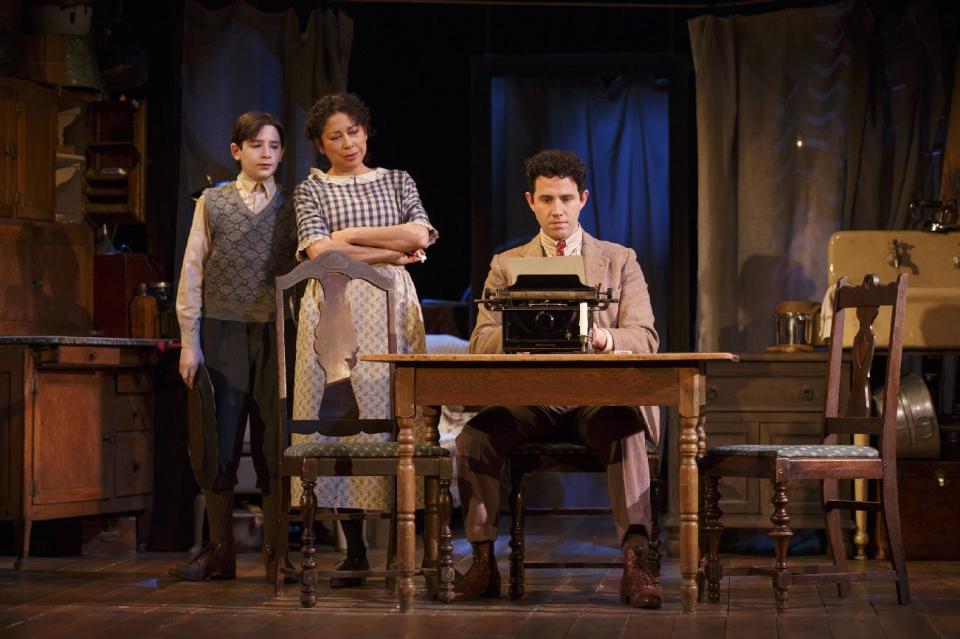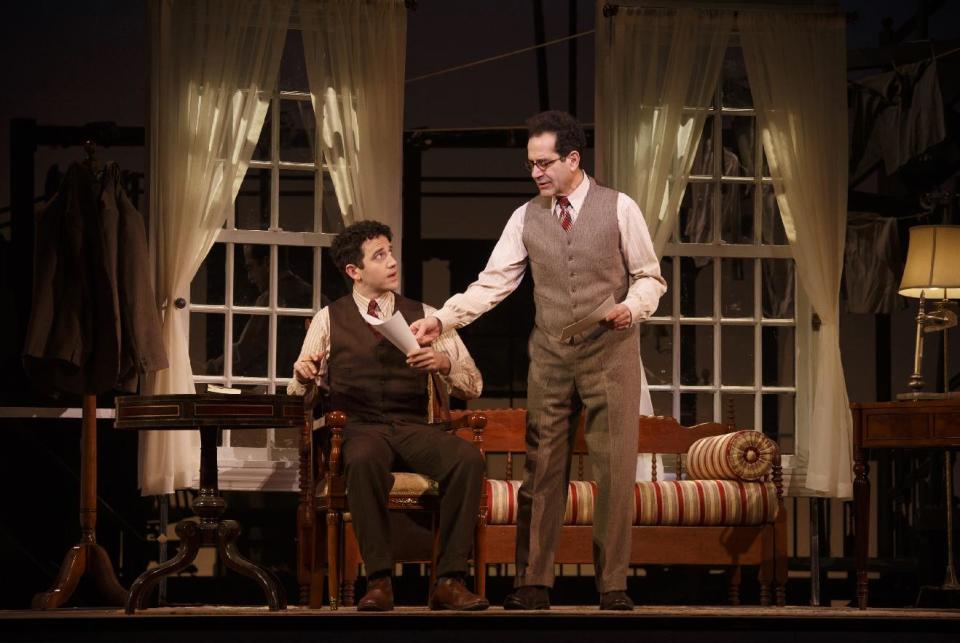Review: 'Act One' is a sweet ode to the theater
NEW YORK (AP) — What's happening now at the Vivian Beaumont Theater was inevitable, really.
Lincoln Center Theater has turned Moss Hart's cracking memoir "Act One" into a rollicking play, which, if you think about it, is the natural medium for a man who lived and breathed the theater, what he called "a lifelong infection."
Hart was a Broadway giant during the 1930s-'50s, directing "My Fair Lady" and "Camelot" and collaborating with George S. Kaufman on such hits as "The Man Who Came to Dinner" and "You Can't Take It With You."
It makes perfect sense that his autobiography is onstage. And no less a modern theater icon than James Lapine has adapted and directed the play, using the stage thrillingly in a way the book could not.
The sweet "Act One," which opened Thursday at the Vivian Beaumont Theater, faithfully and chronologically charts Hart's rise from poverty in the Bronx to co-writing with Kaufman "Once In a Lifetime" in 1930, his first Broadway hit.
But it's of course more than that: The majority of the 22 actors play multiple parts, jumping in and out of characters and costumes while the bold, complex set by Beowulf Boritt spins and spins. So in its very fiber and execution, it's a celebration of the theater itself.
It takes no less than three people to portray Hart — Matthew Schechter as a theater-loving boy, Santino Fontana as the playwright on the verge of fame, and Tony Shalhoub looking back.
Most of the key moments in the book are here: Hart's hardscrabble childhood, his influential theater-loving Aunt Kate, his first job as a messenger boy, his first Broadway flop, becoming an actor and then teaming up with Kaufman. The second act, concentrated on the tortured path of "Once In a Lifetime," goes down better than a slightly sluggish first, which is necessarily weighed down by background.
Fontana and Shalhoub, who eerily begin to resemble each other by the end of the show, have the hardest jobs. Fontana brings his huge charm and energy, his excitement at having a life in the theater infectious. Shalhoub, who plays Hart's stern father and then the oddball Kaufman, doesn't get much chance to rest. Both don't need a gym membership this spring with this much racing around, up and down steps.
Andrea Martin is great as the proud and stubborn Aunt Kate and then plays Kaufman's gracious wife. Chuck Cooper's parts include the frustrated actor Charles Gilpin — though there's no scene in which a drunken Gilpin and Hart play "The Emperor Jones," which in the book was naturally theatrical — and Max Siegel, a general manager.
Lapine manages to keep all these moving pieces going at a healthy clip while also adding what was missing from the book: scenes from Hart's actual plays. In one excellently realized scene, Hart and Kaufman are brainstorming about a moment in "Once In a Lifetime" and the actors in it change their dialogue as the writers edit and rewrite.
Lapine has kept many of the lines that made Hart's book so much fun ("The theater is not so much a profession as a disease" and "A collaboration is like a marriage — nothing anyone tells you about it is of any real use.") He comes close to maudlin when the ghostly Aunt Kate reappears or when Moss' father finally gives him a hug, but pulls back just in time.
But audience-members who haven't read the book may be puzzled by some things: Why is Hart always so hungry while working with Kaufman? Or why Hart feels the need to destroy the room he and his family were renting? And those who have read the book will feel cheated they never got to see the elaborate and hyped set for the nightclub Pigeon's Egg.
Boritt's revolving three-story set spins like a globe that contains apartments, offices, bars and a large theater stage. It has staircases, tenements, grand ballrooms and Broadway marquees. It defies logic. It's like a M.C. Escher painting come to life.
This is ultimately a valentine to the theater and the poor folk who work so hard at it. It's also a celebration of a remarkable man, whose stories sometimes seem too good to be true. And he knows it: "Let's face it," Hart winkingly tells us in Act 1, "life often imitates bad plays." But this is a good play that does his life justice.
___
Mark Kennedy is at http://twitter.com/KennedyTwits
___
Online: http://www.lct.org

 Yahoo News
Yahoo News 